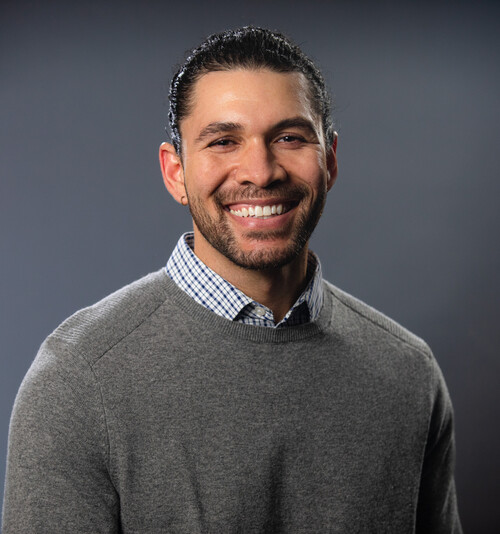Steven Kasparek

Steven Kasparek’s 2023 Harvard Horizons project, "Differentiating 'Us' from 'Them': How Violence Impacts Mental Health by Changing Our Perceptions of Others," explores the ways that violence can shape bias—and that bias can shape mental health throughout a child’s development. His goal is to inform the effort to improve care for kids at risk for depression, anxiety, and the other challenges to their flourishing.
Kasparek facilitated a five-year study that followed children from age 5 to age 10. The team of which he was a part collected data in three different waves: at ages 5 to 6, 7 to 8, and 9 to 10. In the first wave, they conducted in-depth interviews with caregivers about their children’s exposure to violence and collected data from many self-reported questionnaires. During the second, they gathered information about participants’ mental health, using a variety of assessments. “That was to establish a baseline, knowing that down the line we're going to be looking at changes over time,” Kasparek says.
The team also administered an implicit bias test to the children during the second assessment, testing for a psychological effect known as minimal group bias.
“On the basis of minimal information—for example, simply telling someone that they’re going to work on a team with others who have personality traits similar to theirs—people strongly favor the members of that group, even if they’ve never met them,” he says. “This is because we as a social species are evolutionarily primed to want to establish trust, build new connections, and belong to social groups. So, we randomly assigned kids to groups, telling them only that the members liked the same toys and food as they did. And the kids did show strong in-group bias, as we expected.”
When Kasparek’s team looked at the data closely, though, they found that there were differences in how strongly participants favored members of their group. “Kids who experienced violence still expressed in-group favoritism, but not at the level we would expect compared to those who didn’t,” he says. “They showed a weaker, more ambivalent bias.”
Kasparek says that there may be something about experiencing violence, particularly at home, that creates a sense of distrust, caution, or even hypervigilance among children. “These kids may need either more or different kinds of information to say someone is safe or is an in-group member compared to kids who haven't had these early experiences of violence.”
During the final wave of data collection, Kasparek’s team reassessed participants’ mental health. They found that kids who’d expressed reduced in-group favoritism had more internalizing mental health problems—symptoms of anxiety and depression. Kasparek says the reason may be that a more ambivalent preference for new people—a sort of baseline distrust—may make it harder for violence-exposed children to form close connections with others, leading to feelings of loneliness and/or social anxiety.
“School-age children are put in new classroom settings every year,” Kasparek says. “They have new extracurriculars, clubs, and other activities. Maybe some of their classmates carry over from prior years, but they're meeting new kids and adults. If they’re having a harder time with new people, establishing trust, establishing connections, that may set them up for a long trajectory of social and emotional difficulties.”
By studying violence and other risk factors for youth mental health, Kasparek hopes that his work will enable clinicians and educators to design more effective preventive services as well as interventions that might be implemented in schools. The research that underlies such advances is often painstaking and slow, but he says that the children he encounters give him all the inspiration he needs to keep going.
“These kids who we've spoken with—even the ones who have experienced things that would be unimaginable to us—they are so resilient,” he says. “The fact that they are even going to school regularly and have some semblance of a normal life is really encouraging. And the majority end up functioning quite well and leading meaningful lives. I just want to help those who struggle a little bit more along the way move toward wellbeing and have a better shot at thriving.”

